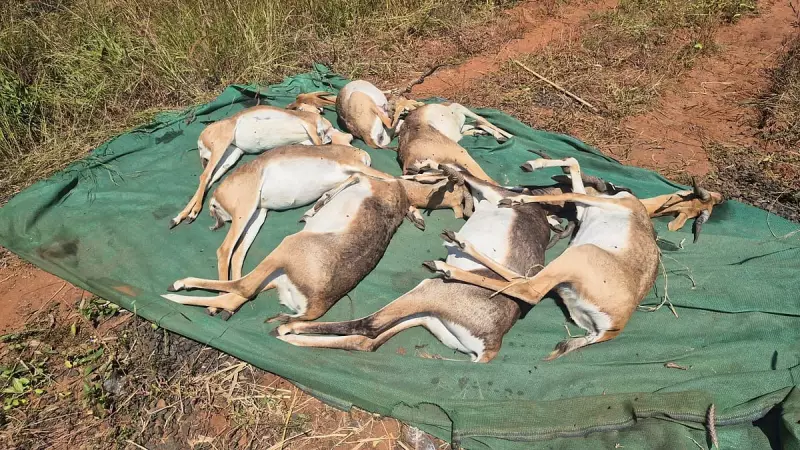
Mass Death of Endangered Antelopes Sparks Investigation
A shocking wildlife tragedy has unfolded at the Belagavi zoo in Karnataka, where 28 black bucks died within just three days, prompting forest officials to order an immediate investigation. The sudden mass death of these protected antelopes has raised serious questions about animal care protocols and veterinary supervision at the facility.
Official Probe Launched Amid Growing Concerns
The Karnataka Forest Department has initiated a thorough probe into the devastating incident that occurred in mid-November 2025. According to official reports, the black bucks, which are Schedule I protected species under India's Wildlife Protection Act, began dying unexpectedly, with the casualties mounting rapidly over a 72-hour period.
Forest officials have remained tight-lipped about whether the veterinary doctor appointed by the Zoo Authority of Karnataka had been conducting regular health examinations of the animals prior to the tragedy. This silence has intensified concerns about the adequacy of medical oversight at the zoo facility.
Questions About Veterinary Care and Monitoring
The incident has highlighted potential gaps in the zoo's animal healthcare system. Wildlife experts emphasize that black bucks, being delicate herbivores, require consistent monitoring and specialized care in captivity. The cluster of deaths within such a short timeframe suggests either an undetected disease outbreak or serious environmental factors affecting the animals.
Local conservationists have expressed alarm at the scale of the tragedy, noting that black bucks are considered sacred in many parts of India and are protected under the country's strict wildlife laws. The species, known scientifically as Antilope cervicapra, has faced numerous threats in the wild, making zoo populations particularly valuable for conservation efforts.
The investigation ordered by forest authorities will likely examine multiple aspects of zoo management, including:
- Veterinary care protocols and frequency of health checks
- Living conditions and habitat management
- Food quality and feeding practices
- Water source quality and environmental factors
- Staff training and emergency response capabilities
As the probe continues, wildlife enthusiasts and conservation organizations are demanding transparency and accountability. The outcome of this investigation could have significant implications for zoo management standards across Karnataka and potentially nationwide.






